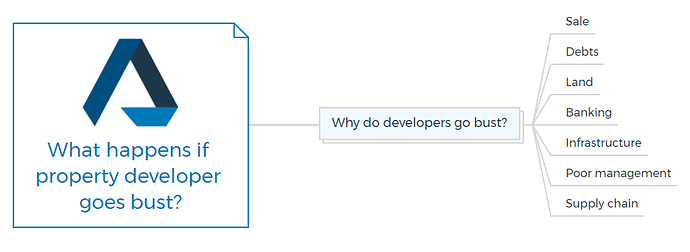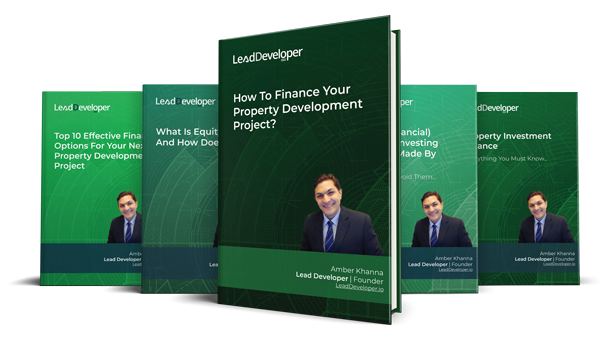What happens if a property developer goes bust?
If a property developer goes bankrupt or is otherwise unable to meet its financial obligations, the process for dealing with the situation will depend on the laws and regulations of the country or region where the developer operates.
Licensed Insolvency Practitioners or administrators might manage insolvent developers.
They will save the business and repay debts.
The major creditor, usually a bank or investor, may appoint a receiver to build out the site to maximise their return and repay the investment.
In general, the developer’s assets, including any properties that have been developed but not yet sold, will be sold off to pay creditors. Any funds that remain after paying off creditors will be distributed to shareholders.
If the developer has entered into contracts with buyers for properties that have not yet been completed, those buyers may be able to seek compensation or have their deposits returned. However, in some cases, the buyers may also lose their deposit.
If the developer has taken out loans to finance its activities, the lender may foreclose on any properties used as collateral.
Learn More
It’s also important to note that a developer’s bankruptcy could negatively impact the local economy, leading to job losses and a reduction in construction activity.
Why do developers go bust?
Like the economy, developers can fail for both positive and negative causes.
Sale
If sales drop, no money comes in. This can impact daily business operations. To keep trading during a slowdown, the firm may need to borrow.
Sales declines will hurt cash flow and debts. The business will still need to pay bills, operational expenditures, and staffing costs, but it may go bankrupt if no money is paid in.
You are missing out if you haven’t yet subscribed to our YouTube channel.
Debts
Companies borrow for expansion, land investment, or sales slumps. The firm may default if servicing those debts becomes too burdensome.
Land
The cost of land in Australia is high. Overpaying for land or not arranging payments can generate problems. The product may be too pricey if the pricing is too high. Full land payment may pose cash flow concerns afterwards.
Learn More
Banking
If a bank changes its philosophy or risk appetite, it may withdraw overdraft capabilities, reducing finances.
Infrastructure
Even the best due diligence is sometimes insufficient. The biggest risk during construction is the ground: unknown services, poor ground conditions, and over-engineered and expensive land solutions.
How To Finance Your Property Development Project?
And Other Books On Real Estate Development Finance
Includes 5 x detailed eBooks
✓ Property Development Finance: Easily Finance Your Project? (26 Pages)
✓ 10 Big (Financial) Property Investing Mistakes Made By Investors (58 Pages)
✓ 10 Finance Options For Your Next Property Development Project (29 Pages)
✓ What Is Equity Finance And How Does It Work? (42 Pages)
✓ Property Investment Finance - Ultimate Guide
Poor management
A business will fail if it makes bad financial forecasts or takes too much money out.
Supply chain
Suppose your budget is based on a particular materials supplier, labour supplier, or subcontractor, and they withdraw their services or get into financial trouble.
In that case, this could cause serious problems, either financially as the replacement is more expensive or through delays, causing your business to miss deadlines and incur penalties.





